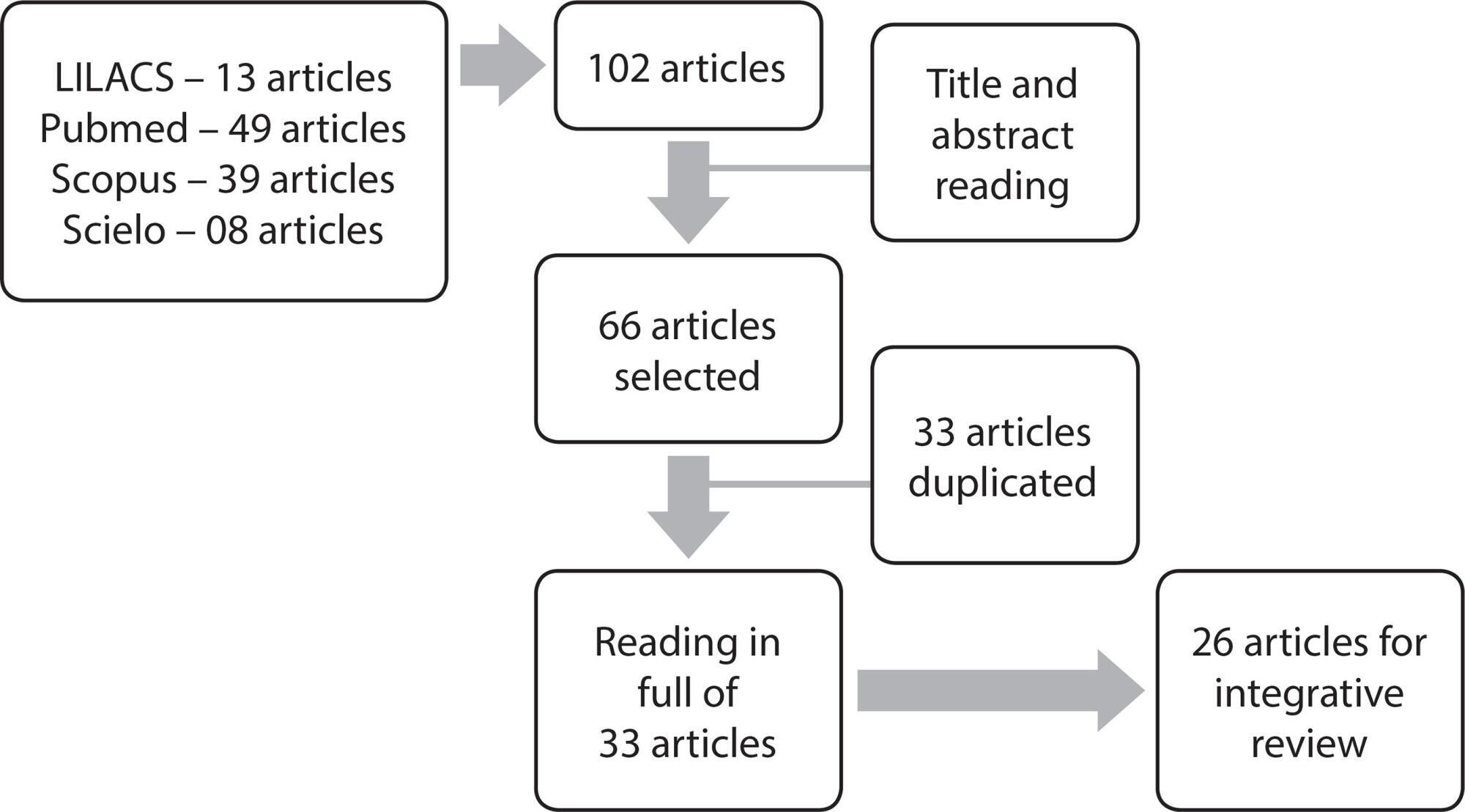-
REVISÃO
Benefits of spirituality and/or religiosity in patients with Chronic Kidney Disease: an integrative review
Revista Brasileira de Enfermagem. 2019;72(2):541-551
04-18-2019
Resumo
REVISÃOBenefits of spirituality and/or religiosity in patients with Chronic Kidney Disease: an integrative review
Revista Brasileira de Enfermagem. 2019;72(2):541-551
04-18-2019DOI 10.1590/0034-7167-2018-0051
Visualizações0ABSTRACT
Objective:
Identify and analyze existing evidence regarding the benefits of spirituality and / or religiosity in patients with Chronic Kidney Disease.
Method:
Integrative review carried out through consultation of databases: Latin American and Caribbean Literature in Health Sciences, Scientific Electronic Library Online, US National Library of Medicine and Scopus. The following descriptors were used: chronic kidney disease, spirituality and religion. Primary articles published by December 2017 were included.
Results:
Twenty-six articles were selected, from which four thematic categories emerged: benefits as a modality of coping, perception of quality of life, mental health and improvement of renal function after transplantation.
Conclusion:
Benefits included those related to situational coping modalities, such as the strengthening of hope, social support and coping with pain; those related to mental health, such as the lower risk of suicide and fewer depressive symptoms; improvement in the perception of quality of life and in renal function after transplantation.
Palavras-chave: Chronic Kidney DiseasePatient-Centered CareReligionReligion and MedicineSpiritualityVer mais
-
PESQUISA
Social representations about religion and spirituality
Revista Brasileira de Enfermagem. 2015;68(4):609-616
01-01-2015
Resumo
PESQUISASocial representations about religion and spirituality
Revista Brasileira de Enfermagem. 2015;68(4):609-616
01-01-2015DOI 10.1590/0034-7167.2015680406i
Visualizações0Ver maisABSTRACT
Objective:
to identify the social representations about the concepts of spirituality and religion of of health teachers.
Method:
exploratory and descriptive study, based on a qualitative approach. 25 subjects participated in it. The following instruments were used to collect data: questionnaire to identify the profile; questionnaire of free association, whose inducing words were religion and spirituality, and an interview based on the scale FICA (Puchalski, 2006).
Results:
the representations about religion and spirituality, for professors, are forged around the faith in God and it gives them meaning and purpose to deal with the challenges of personal and professional living.
Conclusion:
there are still barriers that need to be overcome with a view to a comprehensive care. For this, it is essential to incorporate spirituality in the process in the curricula of health courses.




